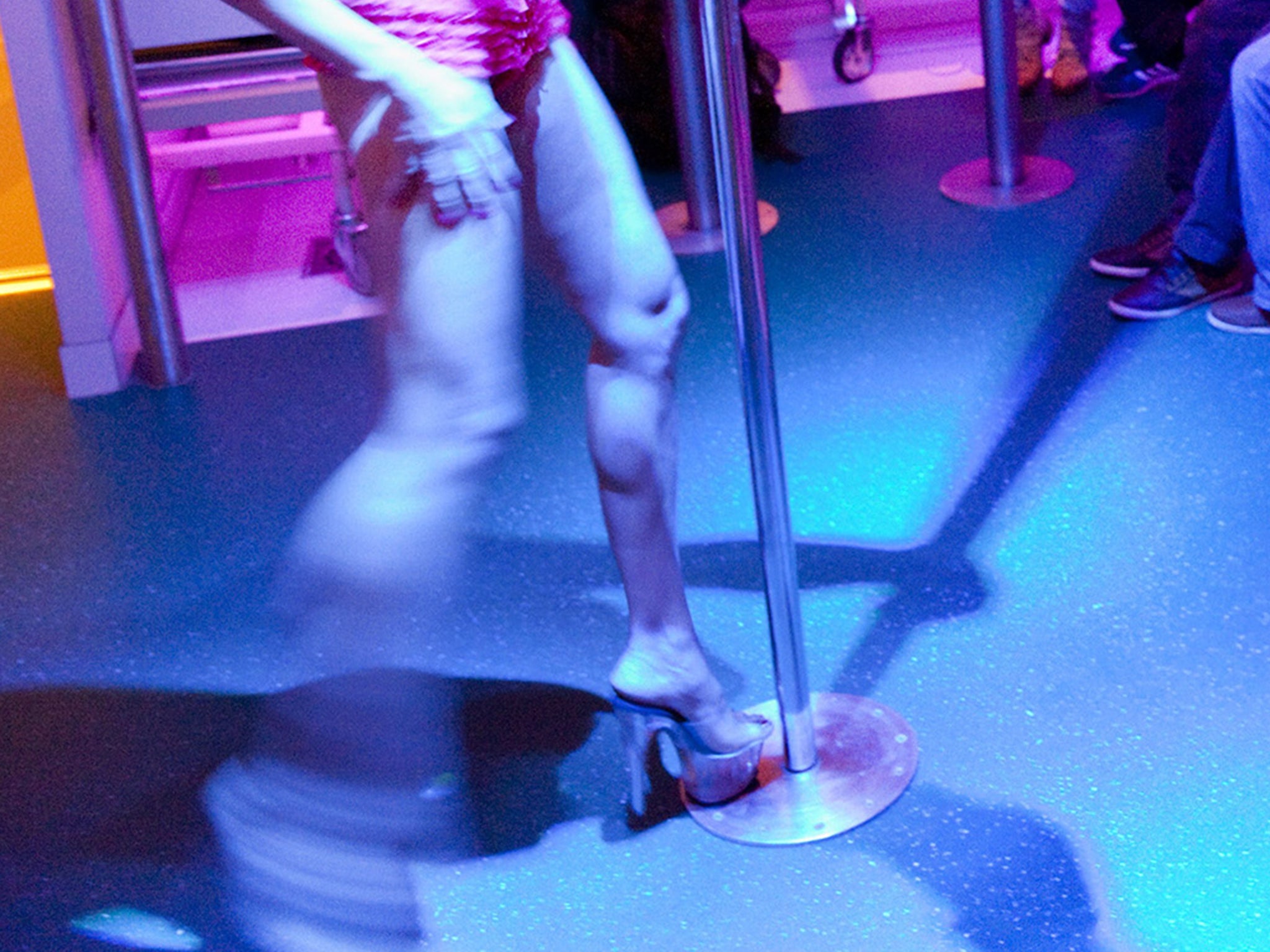Why I’m campaigning for councils to consider the impact of strip clubs on gender equality
On the frontline of the battle for gender equality – in towns and cities round the country – the strip club industry is winning. They have deep pockets and influence

Your support helps us to tell the story
From reproductive rights to climate change to Big Tech, The Independent is on the ground when the story is developing. Whether it's investigating the financials of Elon Musk's pro-Trump PAC or producing our latest documentary, 'The A Word', which shines a light on the American women fighting for reproductive rights, we know how important it is to parse out the facts from the messaging.
At such a critical moment in US history, we need reporters on the ground. Your donation allows us to keep sending journalists to speak to both sides of the story.
The Independent is trusted by Americans across the entire political spectrum. And unlike many other quality news outlets, we choose not to lock Americans out of our reporting and analysis with paywalls. We believe quality journalism should be available to everyone, paid for by those who can afford it.
Your support makes all the difference.The simple truth is that strip clubs allow men to buy access to women’s bodies. That cannot be good for gender equality.
I'm a 54-year-old grandma, with five grandchildren. I’m a lifelong feminist and proud Sheffielder. And I believe that strip clubs make women less safe. That’s why I’m taking Sheffield Council to court for refusing to consider the negative impact on women and gender equality in the community when they came up with their policy of unlimited strip clubs, despite local people bringing it to their attention.
In fact, I and many others think that strip clubs are harmful to both women and men, and are not the kind of places that we want within our communities. Research shows that strip clubs are linked to increased harassment, as well as women not feeling safe around these sites at night.
It worries me that by having a policy that allows an unlimited number of strip clubs Sheffield Council, which has a legal obligation to promote equality, is dismissing the concerns of local people and is refusing to taking a stand on sexual objectification and normalised misogyny.
A High Court judge has looked at our case papers and decided that it is arguable that Sheffield City Council didn’t properly meet their duty to consider the impact on gender equality of their new policy to have an unlimited number of strip clubs. What is more, the judge has decided that my case is of public importance and should be considered by the court. My legal team are now getting ready for the judicial review to go to trial.
We hear a lot about #TimesUp in the press and sometimes it feels like there really is a cultural change happening before our eyes. But on the frontline of the battle for gender equality – in towns and cities round the country – the strip club industry is winning. They have deep pockets and influence.
The laws we have in place on equality and licencing venues like strip clubs were designed to empower local communities and marginalised groups. Our councils should be using these tools to make sure all of its constituents feel heard and represented. Take Camden or Hackney in London: these councils have a zero tolerance policy to strip clubs. But too many are failing to do this. In communities across the country, like Cheltenham, Bristol and Sheffield to name a few, it simply doesn’t feel like the law is being implemented as it was intended.
But the law is clear: if a particular issue is highly relevant for gender equality, a public body must look very carefully at any negative impact on women. Unfortunately, Sheffield Council has taken a very narrow approach and only considered extremely limited evidence about the adverse effect these clubs have on women performers.
We’re building a coalition of women and men from across the country who are united in the belief that the negative impact on women and gender inequality across communities must be properly considered and understood when councils take decisions about strip clubs. We’re up against a powerful strip club industry – Spearmint Rhino, currently the only strip club in Sheffield, has been declared an interested party in the case – but I think it’s important that normal people have their voices heard. I am raising funds for our legal fight on CrowdJustice and am grateful for all the support I have received so far, but there is a long way to go.
I refuse to be cowed by Sheffield City Council and allow them to give the green light to the sexual objectification of our women and girls. As long as they continue to licence these venues, we’re never going to be able to truly call #TimesUp or reach an end to “Presidents Club” attitudes when men can buy women as sexual entertainment.
Irene Gladdison is pursuing her case against Sheffield City Council to consider the impact upon gender equality by licensing strip clubs. Her real name has been changed
Join our commenting forum
Join thought-provoking conversations, follow other Independent readers and see their replies
Comments